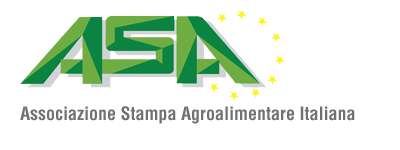The United Nations has declared 2015 the International Year of Soils in order to increase awareness and understanding of this important non-renewable resource. The Research Institute of Organic Agriculture (FiBL) is also engaged in research and launches new projects on soil and soil fertility, not only in 2015 – at our research institute, every year is the year of soils.
(Frick, 11.5.2015) Many billions of people rely on healthy, fertile soil for their food security. But soil is like a thin and delicate skin covering the surface of the planet, and is destroyed by careless, intensive agriculture. Global food security therefore lies in the hands of the farmers who tend their soil with loving care. In 2015 – the International Year of Soils – the United Nations aims to raise awareness of the importance of careful management of this vital resource.
Soil is a key issue on FiBL’s agenda as well. FiBL’s team of researchers and advisors works together with farmers and the agricultural equipment industry to develop low-impact soil management methods that protect soils from water and wind erosion. They test mixtures of bacteria and fungi for use as natural fertilisers and plant health enhancers, and show how sowing cover crops, undersowing with clover seed and intercropping improve nutrient content, soil fertility and yields. Unlike the use of chemical fertilisers, these techniques, which are practised mainly by organic farmers, require a great deal of knowledge and patience.
Giving living soil a voice
A new feature on FiBL’s website is the "Themes" page, which presents the latest advances in soil research along with interesting background. But FiBL does not rely solely on the Internet: conferences are another important platform for information-sharing about project and research findings. For example, FiBL staff attended the recent Global Soil Week in Berlin, where they met with policy-makers, academics, practitioners and public sector representatives and discussed ways of working with farming communities to gain knowledge about the right way of managing soils and thus changing agricultural practices. Giving living soil a voice was the main message for the week. Here are just a few examples of FiBL’s projects which aim to do just that.
Building soil fertility is a major challenge for farmers in Africa. In the ORM4Soil project, FiBL and its partners are working with farmers and rural development institutions in Mali, Ghana, Kenya and Zambia in order to identify ways of introducing innovative techniques into farming practice. The project relies on intensive cooperation between agronomists, soil scientists, sociologists, economists and communication professionals. The use of organic resources such as animal manure, compost, crop residues, clovers and clover stubble as fertilisers and soil enhancers is the main focus of interest. More: www.orm4soil.net
BetterGardens aims to demonstrate the importance of urban green spaces for people and wildlife. The project applies a transdisciplinary approach and involves researchers from the fields of socioeconomics, sociology, soil sciences and biodiversity. They are studying how gardeners manage their gardens and the factors which influence their decision-making, also in the context of social norms, attitudes and beliefs, in order to identify methods and strategies for assessing soil quality and biodiversity in gardens. More: www.bettergardens.ch
In all, 20 research partners from 13 European countries are working together in the FertilCrop project, which aims to identify new cropping methods and techniques for organic farming. Its focus is on interrelationships, e.g. between crop yields and weed growth. More: www.fertilcrop.net
Eight research partners from three West African countries and Switzerland are involved in the Syprobio project, which applies a transnational and transdisciplinary approach. Organic cotton farmers in West Africa defined their interests and problems and, with the help of researchers and farmers’ organisations, identified various innovations which they then tested in the field.
More: www.syprobio.net/fr/spb-home.html
BIO2016 / Indice


